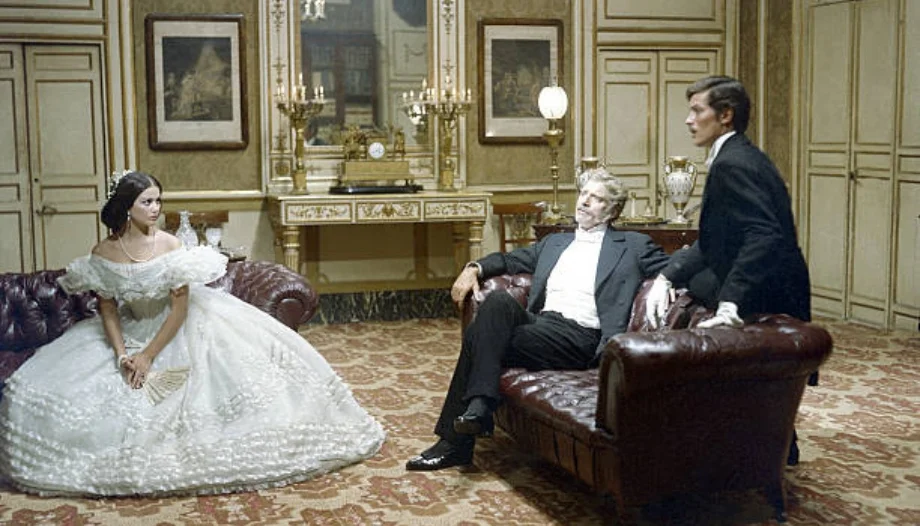The 20th century was marked by wars, revolutions, cultural changes and political transformations that still influence our world. Knowing about it requires more than dates and facts: we need stories that bring us closer to the experiences of those who lived through it. Inspired by the book "Historia, cultura y cristianismo (1870-2020)" by Onésimo Díaz, in this article we recommend a selection of novels and their film adaptations, history books and biographies that allow us to understand the main events of the 20th century in a pleasant and profound way.
From "The Leopard" to "Kites in the Sky", these works offer different perspectives on themes such as freedom and oppression, war and peace, religion and secularization, as well as major historical milestones: the world wars, the Cold War, decolonization or the threat of global terrorism.
10 movies based on novels to learn about recent history
- "The Gatopardo" (1963). Luchino Visconti: representative of the turn of the century.
- "Doctor Zhivago" (1965). David Lean: representative of World War I and the Russian Revolution.
- "The Cardinal" (1963). Otto Preminger: representative of the interwar period.
- "Return to Brideshead." (1981). BBC series: representative of the interwar period.
- "The Grapes of Wrath." (1940). John Ford: representative of the Great Depression.
- "What's left of the day." (1993). James Ivory: representative of totalitarianism.
- "The twenty-fifth hour." (1949). Henri Verneuil: representative of the Second World War.
- "The third man" (1949). Carol Reed: representative of the Cold War.
- "Live!" (1994). Zhang Yimou: representative of Mao's China.
- "Kites in the sky". (2007). Marc Forster: representative of Islamic fundamentalism.
10 history books of the 20th century
- "Earthly Power. Religion and Politics in Europe from the French Revolution to World War I."(2005). Michael Burleigh: a good analysis of the world before the Great War.
- "World War I." (2002). Michael Howard: synthesis of the Great War.
- "Fracture. Life and Culture in the West, 1918-1938." (2015). Philipp Blom: overview on the culture of the interwar period.
- "Europe at War, 1939-1945 - Who really won World War II?" (2008). Norman Davies: a readable and insightful account of World War II.
- "Fear and Freedom. How World War II Changed Us." (2017). Keith Lowe: original worldview around World War II.
- "Postwar. A History of Europe since 1945." (2005). Tony Judt: Europe critically and originally analyzed.
- "The Cold War. A Brief Introduction." (2003). Robert J. McMahon: synthesis of half a century of world history.
- "Civilization. The West and the Rest." (2011). Niall Ferguson: suggestive analysis on the rise and fall of Western civilization.
- "The past of an illusion". (1995). François Furet: explanation of the fall of communism.
- "Blood and Rage. A cultural history of terrorism." (2008). Michael Burleigh: origin and evolution of terrorism.
10 biographies and memoirs to learn about recent history
- "Yesterday's World. Memoirs of a European". (1944). Stefan Zweig: representative work of the turn of the century.
- "A Look Back. Autobiography." (1934). Edith Wharton: autobiography representative of the turn of the century and the First World War.
- "Confessions." (1958). Boris Pasternak: representative thoughts of the tenth and twenties.
- "Confessions of a bourgeois". (1934). Sándor Márai: representative book of the interwar period.
- "Story of a German. Memoirs 1914-1933." (1939). Sebastian Haffner: representative work of the interwar period and totalitarianism.
- "My life" (1968). Oswald Mosley: a work on totalitarianism.
- "Memories" (1969). Albert Speer: a memoir of World War II.
- "Memoirs. Coces al aguijón". (1975). Alexandr Solzhenitsin: representative text of the communist world during the Cold War.
- "Towards infinity" (2015). Jane Hawking: a realist view of the Western world during the Cold War.
- "A personal story." (1997). Katharine Graham: representative work of the end of the Cold War.







